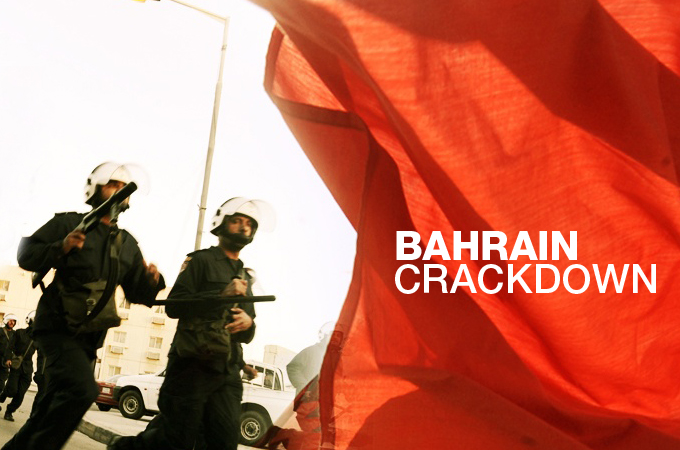Shia opposition boycotts Bahrain by-elections
Main opposition boycotts poll held to fill seats vacated by its members during a crackdown on pro-reform protests.

A Bahrain’s government source has said just over half of the country’s eligible voters cast ballots in by-elections that took place amid a huge police presence and were marred by protests a day earlier.
The election, which began early on Saturday, was for 18 parliament seats that were abandoned by Shia legislators in protest of a violent crackdown on anti-government protests earlier this year.
Sheik Khalid bin Ali Al Khalifa, Bahrain’s justice minister, told reporters that voter turnout was 51 per cent of those 187,000 registered, according to the initial ballot count.
“[From] today most of the parliament will be comprised of independent members,” he told reporters in Manama a few hours after polls closed at 1700 GMT.
Shia-led opposition groups had vowed to boycott the polls, and early reports said few ballots had been cast in central polling stations.
Witnesses told news agencies that lines at polling stations were short or empty throughout the day, making claims of a majority voter turnout unrealistic. In total, 55 candidates vied for 14 seats in the 40-member chamber.
Bahrain ‘boiling’
Once the vote count is official, the election boycott is likely to leave the parliament in pro-government hands and deepen the country’s rifts, analysts said. Four of the candidates were declared winners by running unopposed or after rivals dropped out.
Mehran Kamrava, director of the Centre for International and Regional Studies at Georgetown University in Doha, said the primary point of the polls was to lend legitimacy to the system.
“I don’t think domestically they’re going to achieve much, particularly in the light of al-Wafeq’s boycott of the elections,” he told Al Jazeera.
“Bahrain is boiling. There are tremendous tensions and I don’t think domestically this is going to change much. Certainly the Shias are still quite disaffected; there’s tremendous animosity directed towards the king as well as the prime minister.”
Heavy security
The heaviest security was in Manama’s Pearl Square, formerly the hub for Shia protesters demanding greater rights from the ruling Sunny monarchy in earlier protests.
The area was encircled by barbed wire and lines of armoured police vehicles despite calls by anti-government factions to reclaim control of the site.
 |
| Click here for more of our coverage on Bahrain |
“The protests continue today as the protesters again attempt to reach Pearl Square,” the Bahrain Centre for Human Rights said in a statement.
The centre continued: “Countless areas are witnessing attacks by security forces, as well as arrests and severe beatings … We are receiving more and more reports of security forces raiding houses, beating people and in some cases arresting some.”
Bahrain’s interior ministry reported 22 people arrested on Saturday for attempting to obstruct the vote by closing roads, damaging cars in a parking lot near a polling station or by pouring oil in front of another.
One source told Al Jazeera that tear gas was widely used by police against non-violent protesters.
‘Fake democracy’
On Friday, scattered clashes broke out in mainly Shia areas and Bahrain’s most senior Shia cleric, Sheik Isa Qassim, denounced the government as leading a “fake democracy”.
Parliament has the authority to examine and pass legislation proposed by the king or cabinet and also has monitoring powers.
But the consultative council, or the upper chamber, for which the king appoints 40 members, has the power to block legislation coming out of the lower house.
Khalid bin Ali al Khalifa, the justice minister, told Al Jazeera the election would prove that Bahrainis “are aware of their unity and they are willing to go forward”.
Regional support
Shia claim they face widespread discrimination and believe they are blocked from high-level military or political posts. Among the demands is a European-style system for an elected government, including the prime minister.
Demonstrations inspired by uprisings that have toppled leaders in Tunisia and Egypt have left more than 30 Bahrainis dead this year.
Hundreds of people have been arrested and activists sentenced to life in prison after being charged with plotting to overthrow the ruling system.
Bahrain’s leaders, meanwhile, have received backing from Gulf neighbours that are believed to fear any breakdowns among the region’s ruling kings and sheiks.
A Gulf force, led by Saudi Arabia, was dispatched to Bahrain in March to help prop up the 200-year-old Sunni dynasty when it was beset by protests.